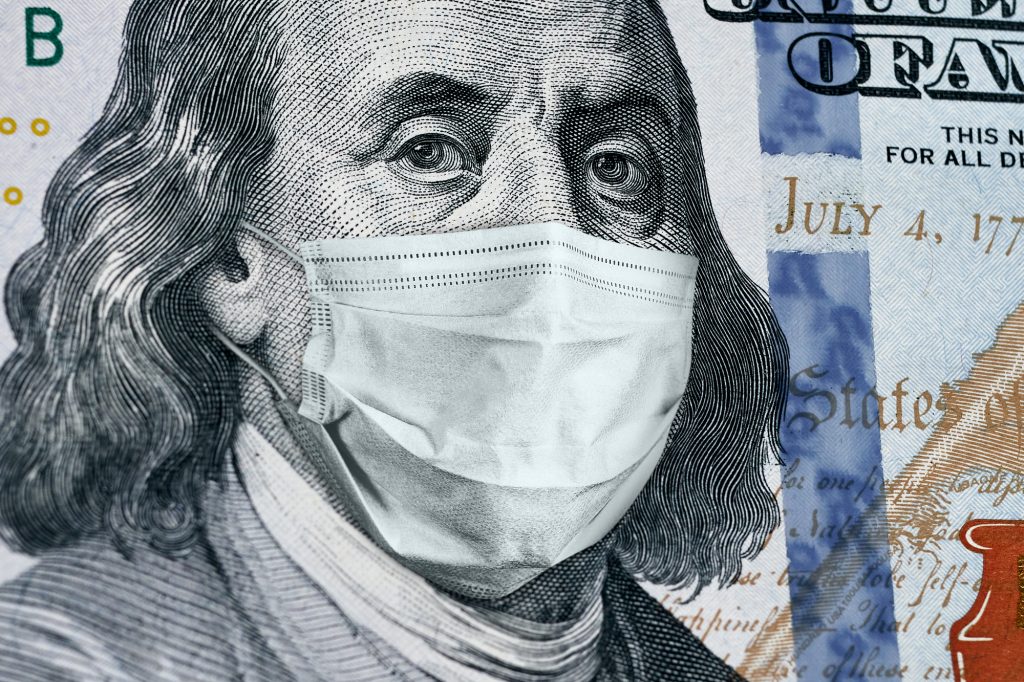US Economy Path Depends On Virus – Federal Reserve Warns

Author: Jeffrey Taylor
Last Updated: 22 June 2021
The COVID-19 pandemic has shaken even the world’s strongest economies and the United States is no exception. As the direct effects of the pandemic abate, the economy is still in recovery.

On Wednesday the Fed held the interest rate near zero because rising inflation was majorly reflecting transitory factors.
The Central Bank of the US has assured the country that it will continue to support the economy through the recovery period.
The Fed has also revealed in a statement that although employment levels have risen post-pandemic, there are still risks in the economic outlook. The statement warned that the economic path of the US would depend greatly on the course of the virus.
This statement comes at a time when it is feared that rising prices could encourage the Central Bank to raise interest rates. Consequently, the borrowing costs for consumers and businesses will go up.
Consumer prices increased 5% in the 12 months counting back from the end of May. According to recent figures from the US Labour Department, this marked the highest year-on-year increase since 2008.
This change in consumer price index has affected both local and international trading activities on US exchanges, including TD Ameritrade and Capitalix.
Understanding inflation
Inflation is described as the rate at which the prices of services and goods increase. It is an essential measure of financial capabilities because it directly determines what consumers can afford. When inflation is high consumers get less value than they used for the same price.
Inflation is expressed as a percentage of an increase or decrease in prices. To better explain, if the inflation rate for the cost of a gallon of milk is 2% a year, consumers need to spend 2% more at the grocery store than they did in the previous 12 months.
The US Federal Open Market Committee (FOMC) officials increased their inflation forecast in 2021 to 3.4%, up from 2.4% in March. They upgraded their projection for economic growth to 7.0%, up from 6.5%.
Some analysts have expressed worry that rapid inflation could force the central bank to hike rates quickly in the future. That would put a dampener on the economy.
Looking forward with optimism
The Federal Reserve has tried to allay those fears. On Wednesday, the agency said it was “committed to using its full range of tools to support the US economy in this challenging time”.
The US central bank also reiterated that it would not hold back from giving support. It would do so until the country has made progress on reducing unemployment and inflation is kept above its 2% target.
One way the Central Bank is keeping its promise is by continuing to buy bonds at a rate of $120bn (£85.6bn) per month.
Jerome Powell, chairperson of the Fed spoke to reporters on how important the moves the agency is making are since the country is still in recovery from the COVID problem.
“The economic downturn has not fallen equally on all Americans, and those least able to shoulder the burden have been hardest hit,” he said.
He has also mentioned that the labor market is “strong”. There are recent reports that certain sectors such as hospitality have been struggling to recruit new hires. However, he maintained that the labor market is “strong”.
Another person who has expressed positivity as regards the economic recovery is Paul Ashworth, the chief US economist at Capital Economics.
He pointed out that the Fed’s tolerance for inflation had been misjudged. He said, “we had assumed the Fed would be a little more willing to let inflation rip, in favor of ensuring a broad and inclusive labor market recovery”.
BWCEvent aspires to share balanced and credible details on cryptocurrency, finance, trading, and stocks. Yet, we refrain from giving financial suggestions, urging users to engage in personal research and meticulous verification.


